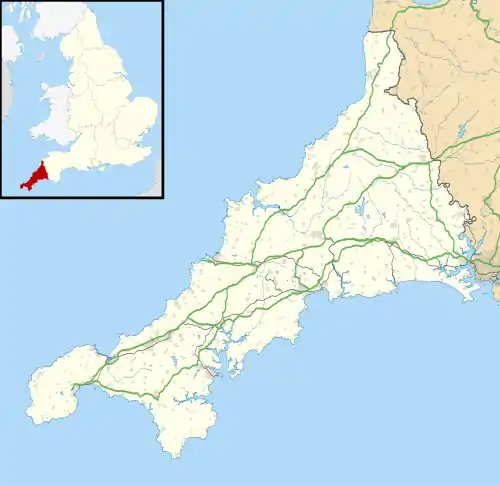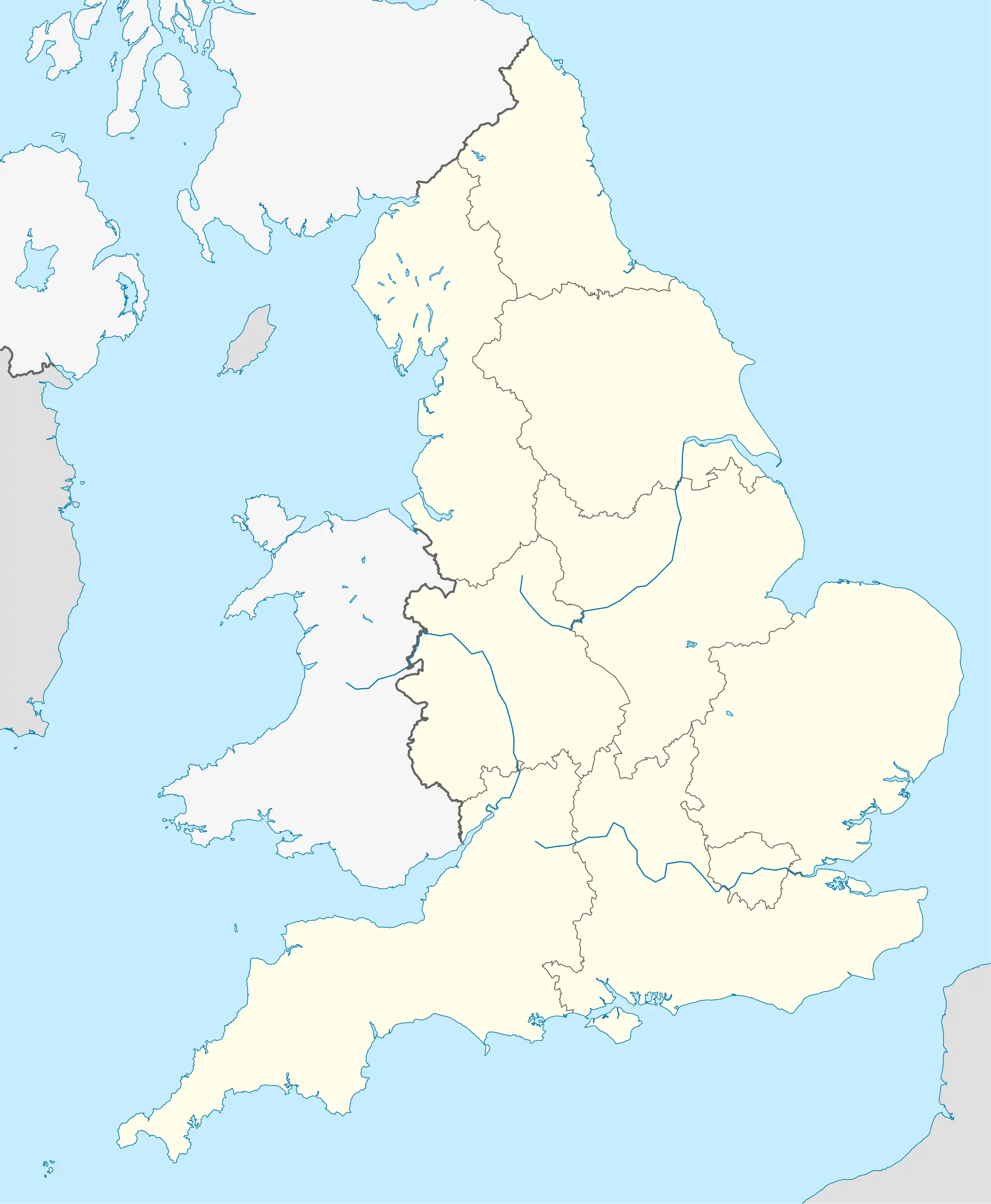Red Moor (nature reserve)
Red Moor is a nature reserve and Site of Special Scientific Interest (SSSI), noted for its biological characteristics, near Lanlivery in mid Cornwall, England, UK.
| Site of Special Scientific Interest | |
 The ponds to the north of Red Moor SSSI, created from old tin mining pits | |
 Location within Cornwall  Red Moor (nature reserve) (England) | |
| Area of Search | Cornwall |
|---|---|
| Grid reference | SX072613 |
| Coordinates | 50.4194°N 4.7151°W |
| Interest | Biological |
| Area | 89.1 hectares (0.8910 km2; 0.3440 sq mi) |
| Notification | 1979 |
| Natural England website | |
Geography
The 89-hectare (220-acre) SSSI, notified in 1979, is located mainly within Lanlivery civil parish, 2 miles (3.2 km) north-west of the town of Lostwithiel. The similarly named hamlet of Redmoor is directly east of the reserve.[1][2]
The nature reserve is owned by the Cornwall Wildlife Trust/Cornwall Trust for Nature.[3]
History
The river coursing out of the north of the site, a tributary of the River Par, was found to flow through tin-bearing gravels by the early mediaeval period.[4] This part of Red Moor was mined for loose tin until the end of the 19th century[5] and the oxidised metal is thought to give the moor its descriptive name.[4]
This SSSI used to belong to the Red Moor–Breney Common SSSI, the two sites having split in the 1986 revision where both sites were expanded.[5] It is adjacent to Helman Tor nature reserve.
Flora and fauna
There are two main habitat types within the site; the dry dwarf-shrub heath to the north and wetter marshy grassland, wetland heath and bog-land in the low-lying basin to the south.[5] The bog contains a variety of Sphagnum peat mosses - that disperse their spores from June to August[3] - bog asphodel (Narthecium ossifragum), cottongrass (Eriophorum vaginatum), and marsh cinquefoil (Potentilla palustris). Other flora on the site include the climbing corydalis (Ceratocapnos claviculata) and the royal fern (Osmunda regalis).[5]
On the site can be found 13 species of dragonfly and damselfly, which include the scarce blue-tailed damselfly, a nationally rare species. Aquatic beetles are also present on the moor, the very scarce Hydrochus nitidicollis being one, as well as 2 uncommon spiders.[5]
Birds recorded on the site include the willow tit, tree pipit, European nightjar and the Eurasian sparrowhawk.[5]
References
- "Red Moor map". Natural England. Retrieved 15 November 2011.
- Ordnance Survey: Landranger map sheet 200 Newquay & Bodmin ISBN 978-0-319-22938-5
- "Helman Tor Nature Reserve (including Breney Common and Red Moor Memorial Nature Reserve)". Cornwall Wildlife Trust. Archived from the original on 5 April 2013. Retrieved 14 November 2011.
- Mercer, R. J. (1986). "Excavation of a Neolithic Enclosure at Helman Tor, Lanlivery, Cornwall" (PDF). University of Edinburgh: Dept. of Archaeology: 3. ISSN 0266-1799. OCLC 499357591. Archived from the original (pdf) on 15 April 2012. Retrieved 14 November 2011. Cite journal requires
|journal=(help) - "Red Moor" (PDF). Natural England. 1986. Retrieved 14 November 2011.